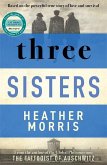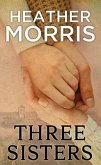Her heart died in the war - can she breathe new life into it?
Dora Simon and Joe O'Cleary live in separate countries, accepting of their twilight years. But their monochrome worlds are abruptly upended by the arrival of Barbara Hummel, who is determined to identify the mysterious woman whose photograph she has found among her mother's possessions.
Forced to confront a time they thought buried in the past, Dora and Joe's lives unravel - and entwine. For, trapped on the Channel Islands under the German occupation in the Second World War, Dora, a Jewish refugee, had concealed her identity; while Joe, a Catholic priest, kept quite another secret...
This is a story of love and betrayal, shame and survival. But can a speck of light diffuse the darkest shadows of war?
Hinweis: Dieser Artikel kann nur an eine deutsche Lieferadresse ausgeliefert werden.
Dora Simon and Joe O'Cleary live in separate countries, accepting of their twilight years. But their monochrome worlds are abruptly upended by the arrival of Barbara Hummel, who is determined to identify the mysterious woman whose photograph she has found among her mother's possessions.
Forced to confront a time they thought buried in the past, Dora and Joe's lives unravel - and entwine. For, trapped on the Channel Islands under the German occupation in the Second World War, Dora, a Jewish refugee, had concealed her identity; while Joe, a Catholic priest, kept quite another secret...
This is a story of love and betrayal, shame and survival. But can a speck of light diffuse the darkest shadows of war?
Hinweis: Dieser Artikel kann nur an eine deutsche Lieferadresse ausgeliefert werden.








